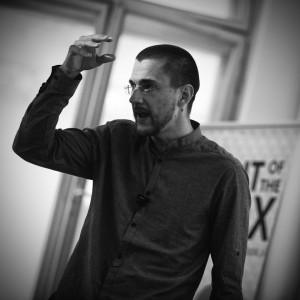Small worlds of Langerhans
Andraž Stožer | Institute of Physiology, Faculty of Medicine, University of Maribor
fizika
| medicina
Reductionism is necessary but no longer sufficient. There is no such thing as a gene for obesity, the economic crisis cannot be solved by a single regulation, and diabetes cannot be cured by a single drug. Obesity, the economic crisis, and diseases such as diabetes are all emergent properties that seem to be more than the sum of their parts.
A new network science, emerging from graph theory, holds promise to help reductionism better understand the rather complex world around us. The birth of this new paradigm that has been brought about by data explosion has helped us discover common properties of real-world systems as diverse as biological, computer, technical, communication, and social networks. The most omnipresent and functionally important property in these networks is the so called small-world-ness, the presence of which endows a network with stability and efficiency in the interaction of elements constituting the network. Such characteristics have many advantages for a number of complex systems, in particular for living organisms.
In this seminar, I shall present how our research group has applied basic ideas of graph theory to networks of beta cells from islets of Langerhans and discovered that they too form a small world. Beta cells are endocrine cells that produce and release insulin, and play a pivotal role in normal whole-body nutrient homeostasis. Similarly to the above examples, also with beta cells, reductionist approaches have failed to explain some emergent properties, important for their function. Since their dysfunction and disappearance lead to diabetes, we hope that network science will ultimately help us better understand and possibly prevent this disease that is expected to become the major threat to public health for the foreseeable future.
Andraž Stožer

In 2005 he won the Professor Janez Plečnik´s award for "exceptional studying achievements in subjects Anatomy, Histology, and Pathology". 2011 brought him the "Best poster award at the Turkish-FEPS Physiology Congress, Istanbul, Turkey", and he also participated at the 61st Nobel Laureate Meeting, dedicated to Physiology or Medicine, in Lindau, Germany. During the years he frequently stayed, studied and worked abroad.